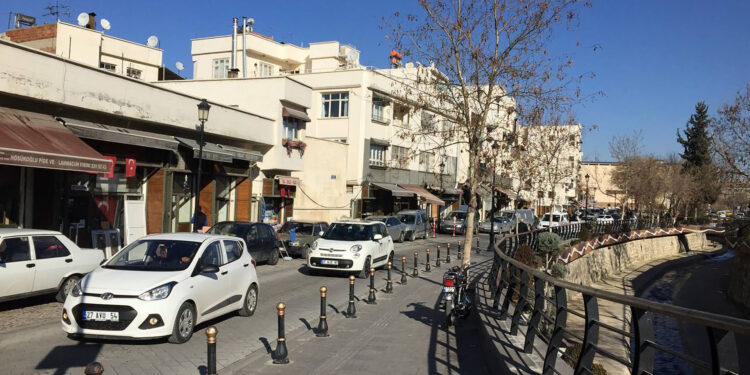Al -Jazeera Net Correspondents
Gaziantep- The Syrian Abdel Hamid Koukah, the owner of a popular restaurant in Gaziantep in southern Turkey, is being involved in writing expressions of reduction and offers on a small banner, in order to comment on the facade of his glass shop in the Iranian market, explaining the reason for this to the decline of the restaurant’s income to below half.
A cake – in an interview with Al -Jazeera Net – says that he is seriously considering closing his shop and handing him over to its owner as soon as he can sell the restaurant equipment, with the aim of securing his exorbitant return expenses to his homeland, Syria, if the majority of Syrian refugees in Türkiye are at the present time.
Cake indicates that the street in which its place was in the past was crowded with the Syrians who were racing to buy from it, while the market today seems almost empty, in a clear indication of the desire of Syrian refugees to provide money and reduce additional expenses.
The owners of Syrian shops and facilities in southern Turkey assert that the decline in the movement of markets and sales has mainly linked to the fall of the Bashar al -Assad regime about two months ago, and the start of the Syrians’ return gradually with the departure of Türkiye voluntarily, suggesting that the number of returnees will increase with the arrival of the summer and the end of the school year.
Has successive losses
On a tour of Al -Jazeera Net on the neighborhoods inhabited by the majority of the Syrian refugees in Gaziantep, several commercial stores belonging to Syrians have been closed during the past two months, most of which are shops selling clothes, foodstuffs and other popular restaurants.
Omar Shami, a sweets store owner, spoke to Al -Jazeera Net that sales declined before the fall of the Assad regime, due to the high prices in Turkey and the difficulty of living for refugees, stressing that the fall of Assad increased his lack of sales.
Shami pointed out that in the way of closing his shop, as a result of his loss during the past two months, and the lack of securing the shop for workers ’wages, rent and raw materials, considering that sitting at home is better than the accumulation of successive financial losses.
The deterioration of the movement of the markets for Syrian projects in Turkey in food and sweets stores is not only, as the owners of haircuts have complained about a significant decrease in the numbers of customers since the fall of Assad in Syria.
The owner of the prince’s haircut, Adnan Abu Saleh, said that the shaving has become as it seems from the luxuries of many Syrians, stressing that a large percentage of his customers did not come two months ago to the salon.
The return of projects to the homeland
Since the fall of the Assad regime in Damascus on the eighth of last December, more than 50,000 Syrians have returned to their country from Turkey, which still hosts about 2.9 million refugees, according to a recent official statistic of the Turkish Immigration Department of the Ministry of Interior.
According to the data of the Federation of Chambers and Exchanges of Turkish Commodities for the year 2023, the number of Syrian companies registered in Turkey since 2010 reached more than 10 thousand and 332 companies, with a total capital of approximately 632 million US dollars.
Economic analyst Abdel Salam Al -Omar suggested a great closure of the small and medium -sized Syrian projects in Turkey at the beginning of the summer until the end of this year, due to the large numbers expected to be returned from Syrian refugees to their country.
Al-Omar says- in an interview with Al-Jazeera Net- that the continuity of these projects is mainly linked to the Syrian customers, a large number of them will return, and therefore it will become an economically losing, with exceptions for shops that have some Turkish customers and customers.
The age indicates that the successful Syrian projects in Turkey, which have proven to provide a product quality, whether from restaurants or foodstuffs, may also succeed in Syria by reopening them in Syrian cities and taking advantage of the reputation and the commercial name it possesses.



